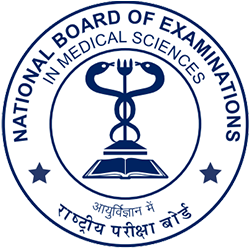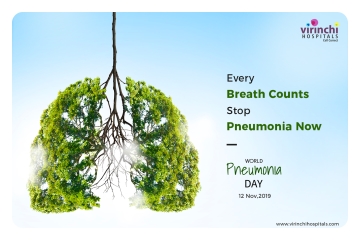What is pneumonia?
It is an infection of the lungs, particularly affection older adults and children.
Signs and symptoms of Pneumonia:
- Fever
- Cough out yellow–green phlegm, sometimes with blood.
- Breathlessness / Breathing difficulty
- Chest pain
- Generalised weakness / Lethargy
- Confusion in older people
Who are typically affected?
- Old age
- Elderly aged people with decreased immunity like HIV, Kidney disease, Diabetes,
Heart failure - Alcohol excess
- Asthama
- Smokers
- Swallowing disorder
What is Bacterial Pneumonia?
- These are the severe forms of Pneumonia caused by Bacteria like Pneumonococcus,
Staphylococcus, Klebsiella and other atypical bacteria - TB is also another bacterial pneumonia and is a slowly progressive disease.
What is Viral Pneumonia?
- Most viral pneumonia are relatively milder infections.
- Influenza (SWINE Flu etc) is the most severe viral pneumonia which can cause
devastating lung damage requiring Ventilator support.
What is Fungal Pneumonia?
- Usually seen in people with decreased immunity
- Pneumocystis jirovecii – Causes the most serious type of fungal Pneumonia
- Histoplasma capsulatum – Causing histoplamosis; pneumonia like infection
- Blastomyces dermatitidis – Causing blastomycosis; pneumonia like infection
- Aspergillus and Candida – Typically causes pneumonia in weakened immune system.
- Most common type in India is Aspergillus, travellers (to the USA etc.) can pick up
infection even with a good immune system.
How Pneumonia is prevented?
- Vaccination – Flu, MMRV and Pneumococcal (PCV/PPV) Vaccines are protective
- FLU and Pneumococcal vaccines can prevent the disease, but are not 100% effective
- Good nutrition, Sleep and Regular Exercise
- Avoiding or quitting smoking
- Adequate ventilation with good air quality indoors
- Adequate treatment of HIV or Diabetes Mellitus or Malnutrition
- Personal Hygiene especially hand washing with soap and use of N95 masks.
How pneumonia is treated at the Hospital?
Depending on the severity with Intravenous antibiotics, Oxygen and ventilator support if
required.
- Usually seen in people with decreased immunity Pneumocystis jirovecii – Causes the most serious type of fungal Pneumonia
- Histoplasma capsulatum – Causing histoplamosis; pneumonia like infection
- Blastomyces dermatitidis – Causing blastomycosis; pneumonia like infection
- Aspergillus and Candida – Typically causes pneumonia in weakened immune system.
- Most common type in India is Aspergillus, travellers (to the USA etc.) can pick up
infection even with a good immune system.
How is Pneumonia Diagnosed?
Pneumonia is diagnosed specifically based on Medical History, patient examination and
diagnostic tests, which include;
Complete blood picture
- Sputum and culture tests
- X-Ray, CT Scan, Bronchoscopy (camera into the lungs)
- Blood gas test
Do’s and Don’t’s:
- Use Paracetamol to control fever and pain
- Do not take cough medicines on your own
- Drink plenty of fluids
- Don’t smoke and stay away from second hand smoke (passive smoking)
- Take adequate rest
- Immediately seek medical advice if the symptoms worsen
Call for Action:
See your doctor right away if you have difficulty breathing, have chest pain, a high fever, or a cough with excessive mucus or blood.





